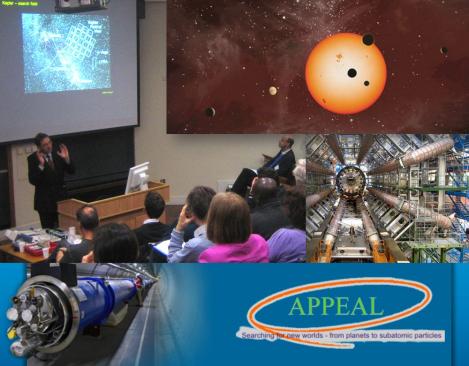With the Venus transit occuring in early June, new worlds constantly being revealed in the search for exoplanets, and the LHC drawing ever closer to finding the elusive Higgs and dark matter...

The APPEAL-3 teachers' conference took place in the department on Saturday 9th of June 2012, organised by the University of Oxford and JAI in collaboration with CERN. The one-day school gave A-level teachers an opportunity to learn about the phenomena and scientific challenges that connect astrophysics, particle physics and the physics of particle accelerators. Participants had an opportunity to learn more about the transit of Venus, exoplanets, connections between astronomy and particle physics, and phenomena being studied with particle accelerators. The school addressed questions such as "What is the origin of the Universe and of matter?" "How can we find planets outside the solar system?" "What is so special about the transit of Venus?" "How do the LHC and other particle accelerators work?" "How are the LHC experiments connected to astronomy?" and "What are the applications of particle accelerators in our daily lives?".
APPEAL-3 built on earlier successful events - the first APPEAL in 2010 and last year's APPEAL-2.
Around 20 teachers attended the event this year. During the day teachers attended a series of lectures on physics topics, visited Jesus College Oxford, and had an opportunity to participate in small group activities experimenting with models of transit planets and hunting for planets with Kepler data. The programme and other material are available here. In the figure: Charlie Barclay explaining Kepler's field of search.